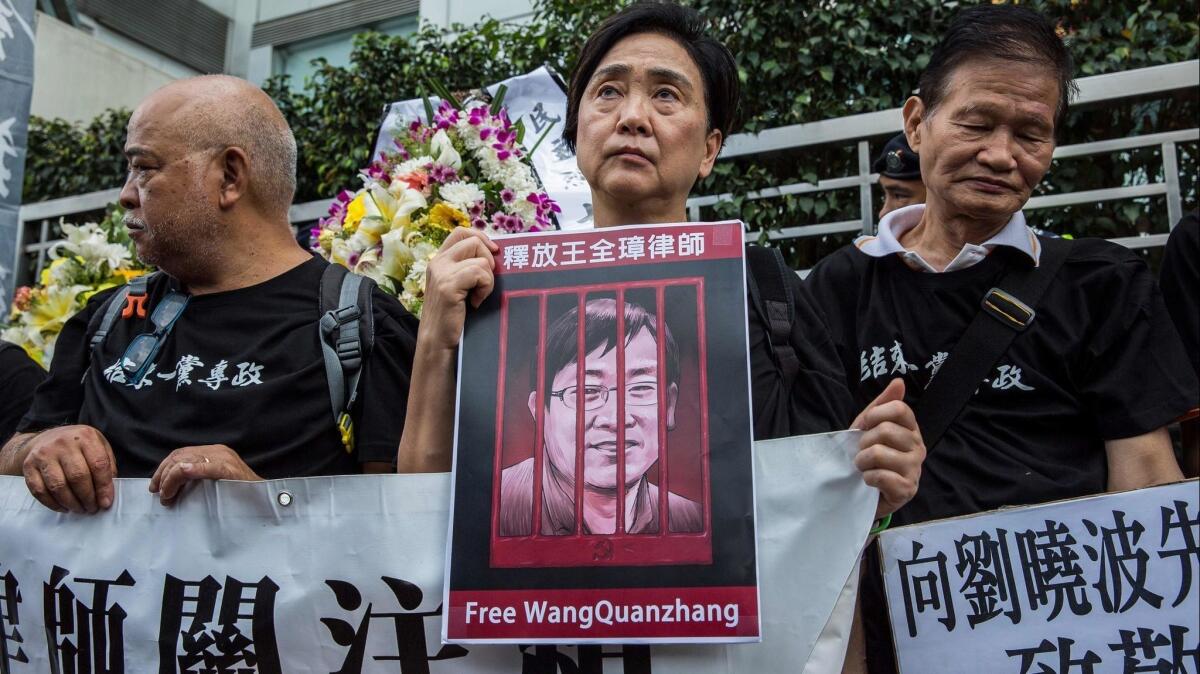Prominent Chinese human rights lawyer Wang Quanzhang sentenced to 4 1/2 years in prison

Reporting from BEIJING — Prominent Chinese human rights lawyer Wang Quanzhang was sentenced to 4 1/2 years in prison on the charge of subversion of state power Monday, more than three years after he was detained in a sweeping crackdown on the legal profession.
The No. 2 Intermediate Court in the northeastern city of Tianjin announced the sentence in an online statement, adding that Wang’s political rights were also being withheld for five years.
Wang’s wife, Li Wenzu, told the Associated Press that she worries about her husband’s health while he is incarcerated.
“Wang Quanzhang has never committed a crime, but they still forcibly charged him with a crime,” Li said. “I think this is because he wouldn’t compromise with them, wouldn’t admit any crime.”
“So I firmly refuse to recognize or accept this result,” Li said.
Wang was a member of the Fengrui law firm that was well known for its advocacy work. He pursued land-rights cases on behalf of poor villagers and represented members of the banned Falun Gong meditation sect.
Rights groups condemned the verdict, with Amnesty International China researcher Doriane Lau calling it a “gross injustice.”
“It’s outrageous that Wang Quanzhang is being punished for peacefully standing up for human rights in China. He must be immediately and unconditionally released,” Lau said in a statement.
Human Rights Watch said the sentence made a “mockery of the ‘rule of law’” being championed by the ruling Communist Party under President Xi Jinping.
“Authorities’ treatment of him ... is the true metric of rule of law in China,” the group said in a statement.
Wang was tried in a closed hearing last month after being held without access to his lawyers or family since 2015, when he became one of more than 200 legal activists detained during a crackdown. It wasn’t clear whether his time in detention would be counted against his sentence.
The subversion charge is only hazily defined, and it wasn’t clear what specific acts Wang had been accused of committing. The authorities regularly try people accused of such charges behind closed doors on the presumption that opening them to the public might expose state secrets — a practice activists say is a thin excuse for a failure to provide solid evidence.
More to Read
Sign up for Essential California
The most important California stories and recommendations in your inbox every morning.
You may occasionally receive promotional content from the Los Angeles Times.










